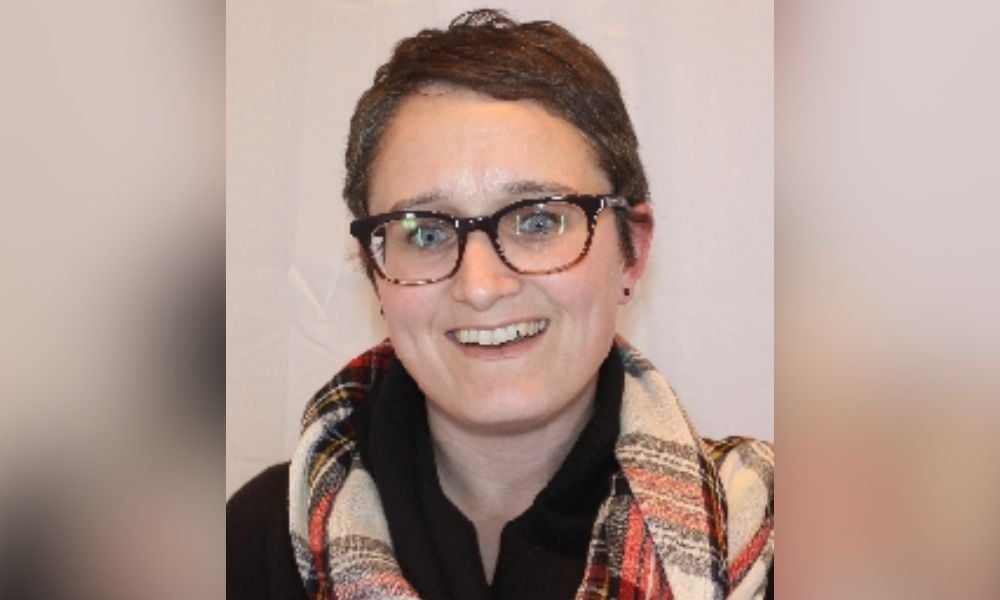In-house contributors are 'critical' to Pro Bono Ontario's hotline

Law firms seem to do a much better job touting their pro bono work – not to mention themselves – than do in-house legal departments.
Surprising it may be, then, to discover that more than 100 legal departments participated in staffing Pro Bono Ontario’s free legal advice hotline in the last 18 months. The service, which took 30,000 calls in 2022, offers up to 30 minutes of free civil law (but not family, immigration or criminal law) advice to individual Ontarians Monday to Friday, 9-5.
“The in-house components are great, great contributors and critical to our program,” said Yonit Fuhrman, PBO’s Toronto-based deputy director. “Of the 13 sponsored days or weeks we had last year, nine involved legal departments.”
Chicago-based Theresa Duckett, associate general counsel & VP at BMO Financial Group, leads a cross-border legal team that represents BMO’s North American commercial and corporate cards portfolio as well as all the Canadian retail banking operation’s commercial transactions. Among her accomplishments are the development and implementation of a global pro bono team for the group, an endeavour that began in 2015.
In-house lawyers, Duckett said, are uniquely suited to deal with the diverse issues that arise in broadly-based consumer legal assistance programs such as PBO’s hotline.
“Our lawyers who volunteer with PBO aren’t necessarily experts on the wide range of issues – like civil litigation, employment, housing – that they encounter, but because we spend a lot of our days solving unexpected problems as part of our jobs, we have the flexibility to walk into unfamiliar situations and deal with them.”
What’s unique about BMO’s legal and compliance pro bono program is its cross-border nature.
“While US attorneys can’t participate in the PBO hotline, which requires Ontario-called lawyers, BMO seeks out opportunities for our folks to deliver services from wherever they are,” Duckett said.
By way of example, BMO is one of the few legal departments to take on asylum cases.
“And while so far we’ve only done that in the US, we have multilingual lawyers in Toronto who support our Chicago team with translation services and others who do research for us,” she said.
Other BMO pro bono projects include holding power-of-attorney clinics, where volunteers attend hospitals to help patients who need, among other things, advance directives, living wills or various POAs; assisting parents of children with severe disabilities with legal appeals for benefits; and providing legal assistance with elder law advice.
Find out what are living wills in Canada in this article.
Getting her team to buy into pro bono work, Duckett said, has never been a problem.
“There is interest and enthusiasm from our offices all over the place and the individuals who have been involved have found the experience to be very enriching – after all, it feels good to do good things.”
From the corporate perspective, pro bono is an important manifestation of the organization’s commitment to community and to its customers. And there are internal benefits as well.
“Doing pro bono gives us opportunities to meet folks outside the department, to meet our external lawyers and other members of the legal community, and a chance to build relationships within our legal and compliance group,” Duckett said.
Evidence of pro bono’s rise in-house becomes evident from the growth of Financial Institution Pro Bono Day, organized by Corporate Pro Bono, an international organization that supports the pro bono efforts of in-house legal departments. FIPBD’s inaugural saw 14 financial institutions in 20 US cities organize 47 pro bono events engaging more than 700 volunteers from 21 institutions. In 2022, the third such event involved more than 1050 in-house volunteers serving 950 clients at 65 international events.
What’s clear is there’s room to grow.
“The need for access to legal services will always outpace what we can deliver,” Duckett said.










